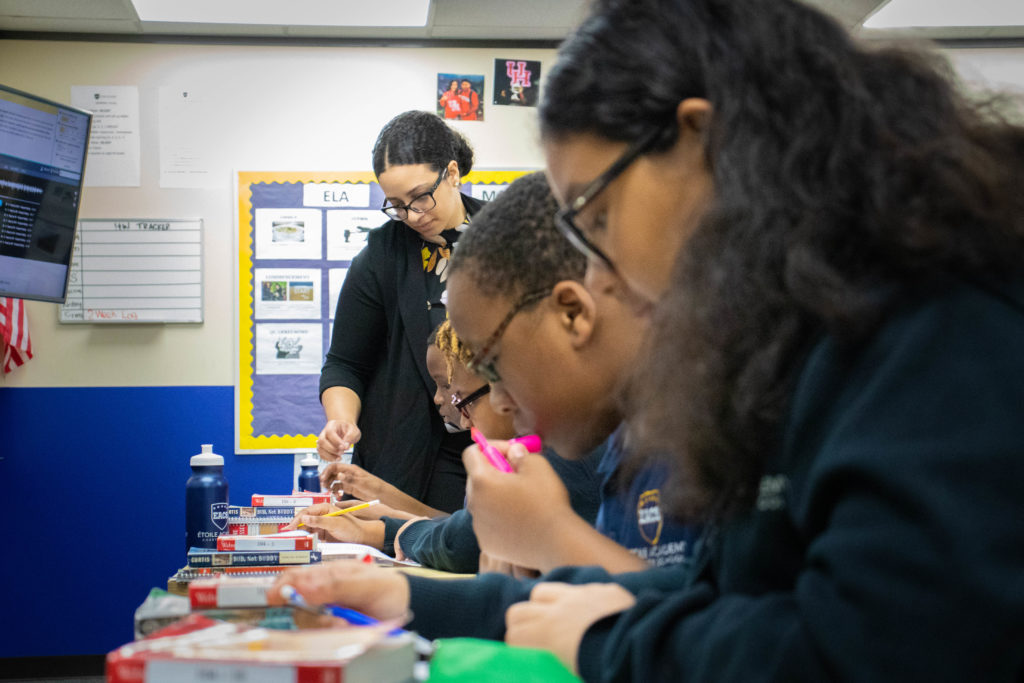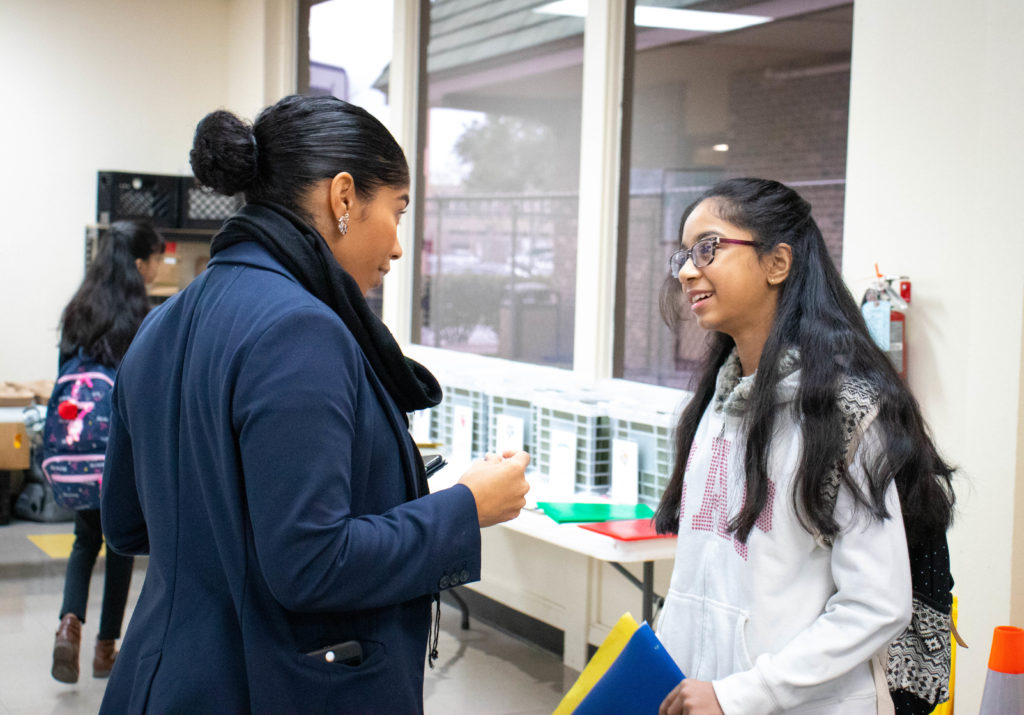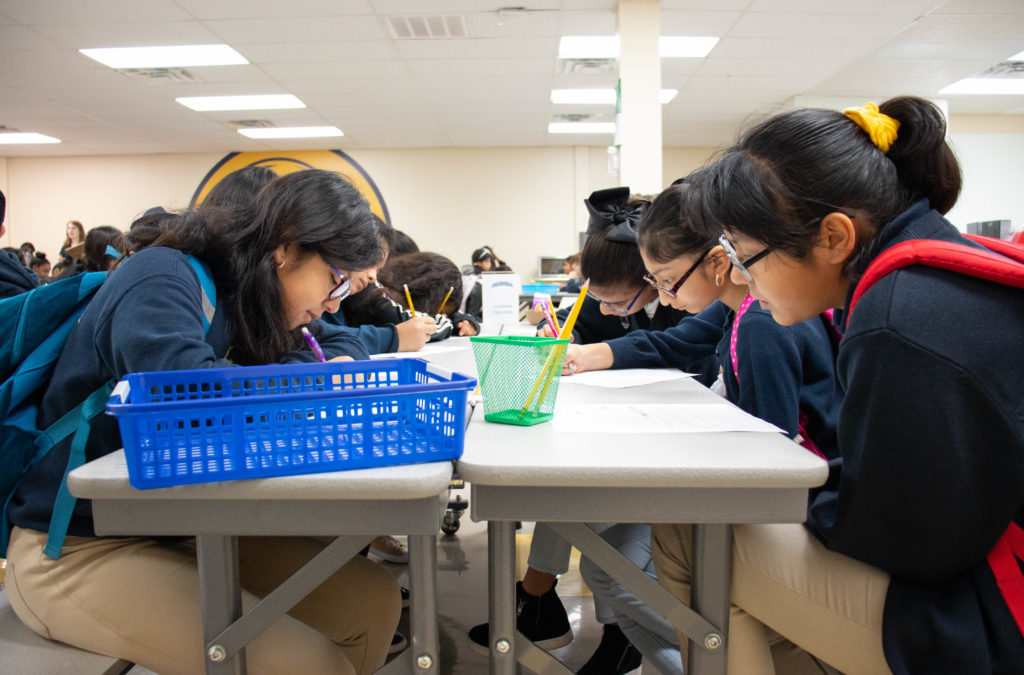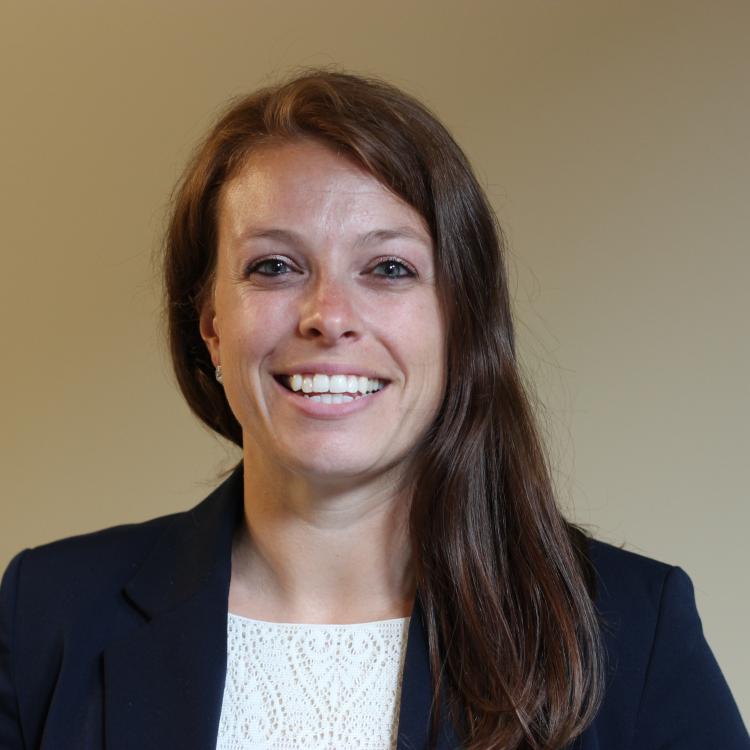What do you do when parent sentiment changes and you’re not sure why? Étoile Academy Charter School Superintendent and Lead Founder, Kayleigh Colombero, looked to Possip, which helped her identify a root cause. We spoke with Colombero about how she manages Possip, and uses it to inform her decision making at school and strengthen Étoile’s parent partnerships.
Étoile, which means “star” in French, prides itself on creating a school community where students reach for ambitious goals and parents feel welcomed and connected.
It started with a tight-knit group of 75 students and families, and has seen substantial growth over the past few years. Although it’s growing, Colombero wants the school to maintain its strong connection to all parents, so when presented with an opportunity to partner with Possip, thanks to the Charter School Growth Fund, she took it.
Read our full interview below!
You’re a newer Possip partner. Can you tell us some about why you wanted to use Possip in partnership with the Charter School Growth Fund?
Hearing about Possip, I felt like this would be a great opportunity for us to get regular touch points from parents, and then use that to have follow-up conversations with parents that we really needed to reach out to.
We are super excited to be in the Charter School Growth Fund portfolio. It was a pretty rigorous application process and our staff was thrilled to be invited into the portfolio because it comes not only with supportive funding but, even more importantly, a lot of great opportunities like Possip. Being in the portfolio can help us think about what systems and software we can put in place before we start our major growth trajectory over the next five years. It’ll help make sure that we’re set up for success.
What was your first impression of reports?
Truly, I wish every email that came to me would be as organized as the feedback I get from Possip.
I love that at the top there’s a visual that says how many families said yes, they’re super happy, how many said mostly, and how many said no. Then it really shows what the hot priorities are– feedback you need to respond to right away. As you scroll down, you can see all feedback if you want. We have a very high population of Spanish speakers so I love that it has their original Spanish feedback and a translation. I love that as I scroll I can get a sense of exactly what parents are saying and follow up right away.
I felt like you had school leaders in mind when you designed it– school leaders don’t have time to read every single thing on the page, you made the report very clear so we can know what the big things to prioritize are.



What kind of system does your team use to follow up?
All of our leaders have a log in to Possip, but we tend to have people own certain projects. I own Possip since it’s something we are piloting and something I am considering making a part of every campus we open.
As soon as I get the email that we have a new report, I open it up. Even though our leaders have access to the report, I screenshot who the parent is, their email and phone number–I love that their contact is included right under their name. I email their comment to the appropriate leaders and specifically let them know next steps. I find that to be really helpful because leaders have so many platforms to log in to. It’s really helpful for me to screenshot the one thing I need that leader to pay attention to and let them know by EOD I’d like to hear a report on the conversation.
Can you provide an example of closing the feedback loop?
One of the, probably, best examples: we did not have after-school programming during COVID for obvious reasons. But when we opened this year, we felt like we could return to after-school programming. It’s an important part of what we offer for parents and students. For example, we have tutoring after school and extracurricular clubs.
So, when we launched it in the fall, because we hadn’t done after-school programming in a while, a lot of parents had questions about it. We have a director of after-school, so I was able to send our director parent questions about it from Possip.
And, transparently, it gave my upper level leadership and I a chance to reflect– how well did we message about after-school? Did we message well enough if we got a bunch of questions about it? How could it have been messaged more successfully so we wouldn’t have so many parents confused about it after the fact?
So two main takeaways– one, parents have loved that we reach out to them right away and answer their questions or address their concerns. We get a lot of parents who say, “I can’t believe you called me right away, I just did that survey on Friday.”
But then two, it really helps us as an organization think about how we could have better messaged something from the start to prevent the parent confusion in the first place.
The last time we talked, you mentioned that you connected a lower sentiment at one point to report card release. This helped inform your decision making at school afterwards. Can you speak more generally on how gaining parent feedback through Possip has informed your decision making at school?
So we are typically in the 90s or higher for “yes” replies to the Pulse Check™ (parents saying yes, they’re happy with the school). One week, we didn’t have that many “no” replies, but we did have a lot of mostlys, and when we looked at the feedback, there were parents expressing concern that their student wasn’t academically successful.
Taking those comments in, we did two things: one is that we always host parent-teacher conferences after report cards, so we messaged teachers: “hey, this is a lot of students’ first report cards from us.” A lot of parents are used to schools that give As and Bs without real context, so we made sure to include in our parent-teacher conferences a copy of our most recent NWEA Map Scores, so teachers could talk through those with parents and show them how the grades actually match those test scores.
Additionally, while we know kids can make progress and will make progress, we wanted to be honest with parents about where they were starting off the year, especially coming back from COVID.
The second big thing we did is host a virtual parent meeting about the different interventions that we offer students– how we are supporting students with literacy, how we are supporting them with math, and how parents can support them at home as well.
This was to help respond to the understandable concerns parents had about their kids starting the year off in a lower place than they were used to seeing.
It gave us a good perspective on how we can help parents understand that, while it is concerning if your student isn’t performing well right now, we have lots of systems in place to make sure by the end of the year they are successful.
Why does parent voice matter to you?
I firmly believe that parent voice, with the possible exception of student voice, is the most important thing that we can get.
One of our main things that we talk about at Étoile is: why did we build the school? What is our legacy? Why do we do this work every day?
The answer is that we really want kids and families to be able to point to Étoile as a pivotal moment in their lives that allowed them to be on a productive, successful, and ambitious pathway trajectory for the rest of their lives. And you can’t do that without family collaboration.
It would never be that meaningful to students or to families if we left the family piece out, especially since we started with 75 students and we got so close to our founding families. We’ve always had it in our hearts to make sure that, as we grow, we manage to maintain that level of connection and that level of two way communication with families. When we know what families are excited about and what families are up against, it makes us a better school, better teachers, and a better organization that can best support, not just students, but families as a whole.

Special thanks to Superintendent and Lead Founder, Kayleigh Colombero, for the interview! Learn more about Étoile Academy Charter School here.
Read more Possip Partner Spotlights to learn how parent and staff voices help inform decision making at school for additional school and district partners.
For current partners: The Bonus Question is a great way to get insight to inform decision making at school. Do you have a story about how Possip has impacted your decision making at school? Email us!


